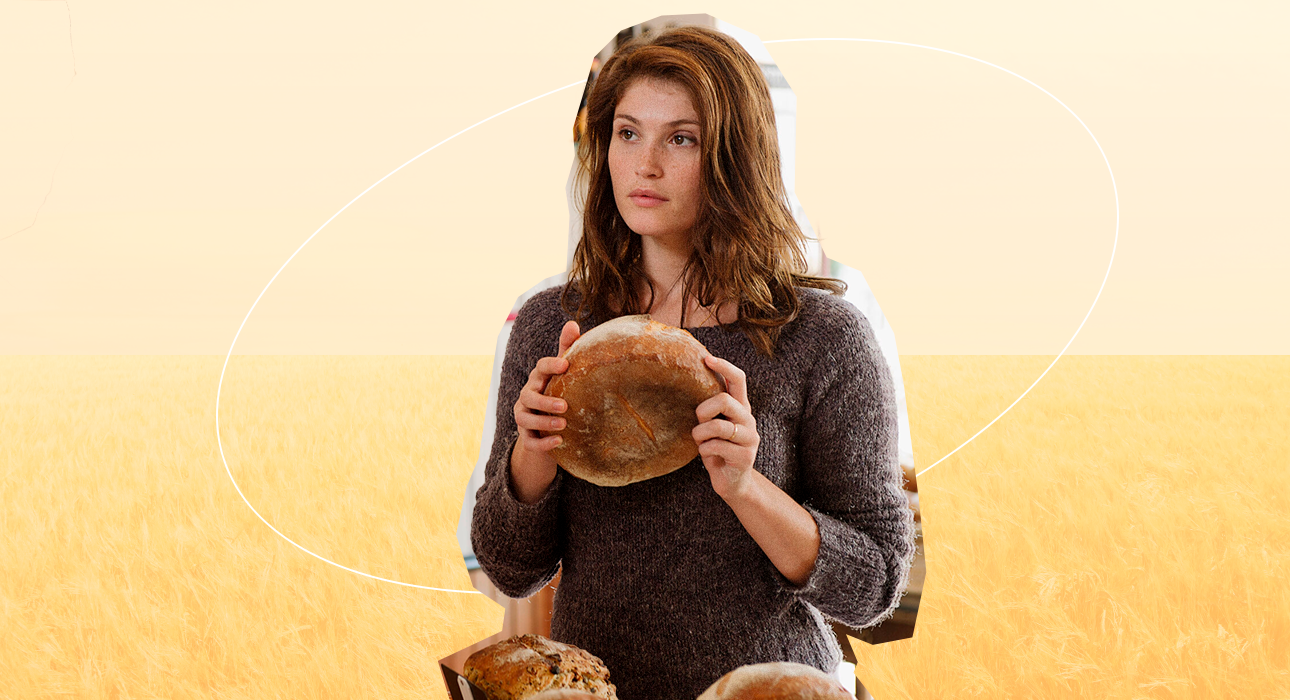Dear reader, we present to you our beauty columnist Inessa Tsarkova!
Inessa is an active nutritionist, gastroenterologist, therapist, naturopath and aromatherapist, health coach, integrative medicine doctor with a holistic approach. And now she will share with us her knowledge in the field of both physical and mental health, nutrition and much more.
Friends, did you know that plants are great alchemists? The most important magic they can do is to convert solar energy into an organic molecule of glucose (which plants can store in the form of starch). Glucose is the main substrate for energy production in almost all living organisms on planet Earth, including humans. Plants also absorb carbon dioxide, converting it into oxygen, which is essential for life.

Inessa Tsarkova
These magicians secrete essential oils that the plant needs for healing and restoration, as well as protecting it from pests, parasites and fungi, and attracting insects for pollination. Plants also increase the appetite of herbivorous “predators” so that they want to eat them at the right time, and thus the dispersal of plant seeds occurs, expanding the area of growth.
Plants have learned to synthesize various substances – antinutrients – designed to protect their “children” when they are not yet ready to travel or plan to leave their parents. Antinutrients are designed to prevent seeds from being eaten in the gastrointestinal tract or to prevent their digestion. To do this, they must be able to harm the body of the animal that eats them.
For example, phytic acid, which is found in nuts, seeds and legumes, has a special effect on the body, interfering with digestive processes and inhibiting the bioavailability of iron (which promotes the development of iron deficiency anemia) and xanthine oxidation (which can lead to iron deficiency anemia, for example, urolithiasis). The functional task of this acid is as follows: to keep the enzymes inside the fruit from being active until favorable conditions for germination are created. It serves as a guarantee of the preservation of the vitality of a seed or nut, and at the same time negatively affects the body of those who want to eat the planting material.
If phytic acid enters the stomach:
inhibits the functioning of the gastrointestinal tract;
slows down metabolism (as a result, prevents weight loss);
contributes to the formation of rickets;
inhibits enzyme production and irritates mucous membranes;
Inhibits the absorption of microelements.
Animals and birds that feed on phytin-containing foods in nature have learned, as a result of evolution, to neutralize the effects of inhibitors. They successfully obtain from them the necessary substances to support the body in winter.
Precisely because of the presence of this antinutrient, it is better for humans to eat soaked nuts, seeds and legumes, first grinding them and even better, sprouting them, in order to reduce the amount of phytic acid and weaken its activity.
Plants that do not want their “babies” to be eaten and taken away (from a fertile place of growth) also produce special proteins – lectins. The most famous of these is gluten, but there are many varieties of such proteins.

American doctor, cardiovascular surgeon and researcher in the field of heart surgery Stephen Gundry describes their action in his book “The Plant Paradox” as follows: “Lectins are sticky “smart” bombs that stick to sugars and disrupt transmission. The transmission of messages between cells causes chaos and inflammation… Found in the seeds, grains, peels, bark and leaves of most plants, lectins bind to carbohydrates (sugars) in the carnivore’s body, especially complex sugars called polysaccharides, after they are eaten. They also bind to sialic acid, a sugar molecule found in all body fluids, including the intestines, brain, nerve endings, joints and the lining of the blood vessel walls of all living things.
Lectins are considered adhesive proteins, which means they can disrupt communication between cells and cause inflammation and toxic reactions in the body. They can block nerve-to-nerve signaling or, conversely, help viruses and bacteria communicate with their intended targets.
If you find yourself getting sick more often than most of your friends or gaining extra weight, Stephen Gundry suggests you consider this. After all, the plant is prepared to protect its seeds until the end, which means lectins are designed to either instantly kill the animal that eats them or cause disease.
“Lectins are almost indistinguishable from certain proteins in our body. In this way, they trick our immune system into attacking our own cells. This is the first step towards autoimmune diseases,” the doctor summarizes.
The paradox of plants is that, on the one hand, they are a storehouse of vitamins, microelements, antioxidants and other substances necessary for us, and on the other hand, they are a source of anti-nutrients that not only protect their seeds from digestion, but can also seriously harm the health of humans and animals, as well as being affected by their digestive system.
Protective factors against harmful lectins in the human body
First line of defense: mucopolysaccharides in the nasal mucosa and saliva in the mouth. This is another good reason to chew your food thoroughly and try to saturate it with saliva as much as possible.
Second line of defense: gastric juice, which in most cases digests some (but not all) lectin proteins. For its normal production, it is very important not to eat on the go, in a state of nervous excitement.
Third line of defense: bacteria in the mouth and intestines. This is a friendly part of the microbiome that can effectively absorb lectins before they cause inflammation in the intestinal wall and enter the bloodstream. The longer you eat certain plant lectins, the more you produce gut bacteria specifically designed to neutralize them. So we need to consume a certain amount of lectin-containing foods (whole grains, nuts, seeds, fruits) to feed these beneficial microbes. And avoid antibiotics whenever possible.
The fourth and final line of defense: A mucus layer produced by certain cells in the intestines. It contains sugars that bind lectins and prevent them from entering the bloodstream. We also need beneficial bacteria to produce this layer (these feed on completely different types of foods than our brains “like.” They love resistant starches (found in millet, sweet potatoes, turnip greens, and green bananas, for example), as well as “tasteless” dietary fibers found in green plants and raw root vegetables. Some of these bacterial saviors (and protectors) in lectins are passed down to us from our parents and ancestors. So it’s important to include in your diet exactly the foods that nourished your ancestors. And introduce new ones gradually and watch very carefully how your body reacts to them.
The problem of modern man is that lifestyle, constant stress, numerous eating disorders, ecology and bad habits destroy this defense, making most of us practically defenseless against these harmful substances.
It is important to know that bare plants (mostly annuals such as wheat, rye, barley, oats, corn) contain more lectins than plants with juicy fruits (attractive, tasty, aromatic, full of moisture and specially designed to be eaten). This is because the former want their “children” (seeds) to fall next to them in fertile soil and to sprout there next year to take their place. For this reason, they are especially diligent in protecting the seeds that contain these harmful proteins from herbivorous predators.

Plants with bright, sweet and juicy fruits (usually perennials or fruit trees), on the contrary, tend to move their “offspring” as far away as possible so that they do not compete with their “parents” for soil, water and sunlight.
When the fruit is not yet ripe, it produces more lectins, because the seed inside it has not yet hardened and has not formed a reliable protective shell. After all, it is much easier for the digestive system of herbivores to digest it at this time. Therefore, you need to give preference to ripe seasonal vegetables and fruits. Moreover, they contain much more vitamins.
My dear readers, strive and never get tired to study yourself, your body, the rules of its healthy functioning, the laws of nature and even the entire universe. Think differently, realize and act differently. Ultimately, this knowledge and new conscious actions will help you to express yourself more successfully in this world and to keep the “car” that your soul “drives” in this life – your own body – in perfect condition.
Source: People Talk
Errol Villanueva is an author and lifestyle journalist who writes for The Fashion Vibes. With a passion for exploring the latest trends in fashion, food, travel, and wellness, Errol’s articles are a must-read for anyone interested in living a stylish and fulfilling life.





